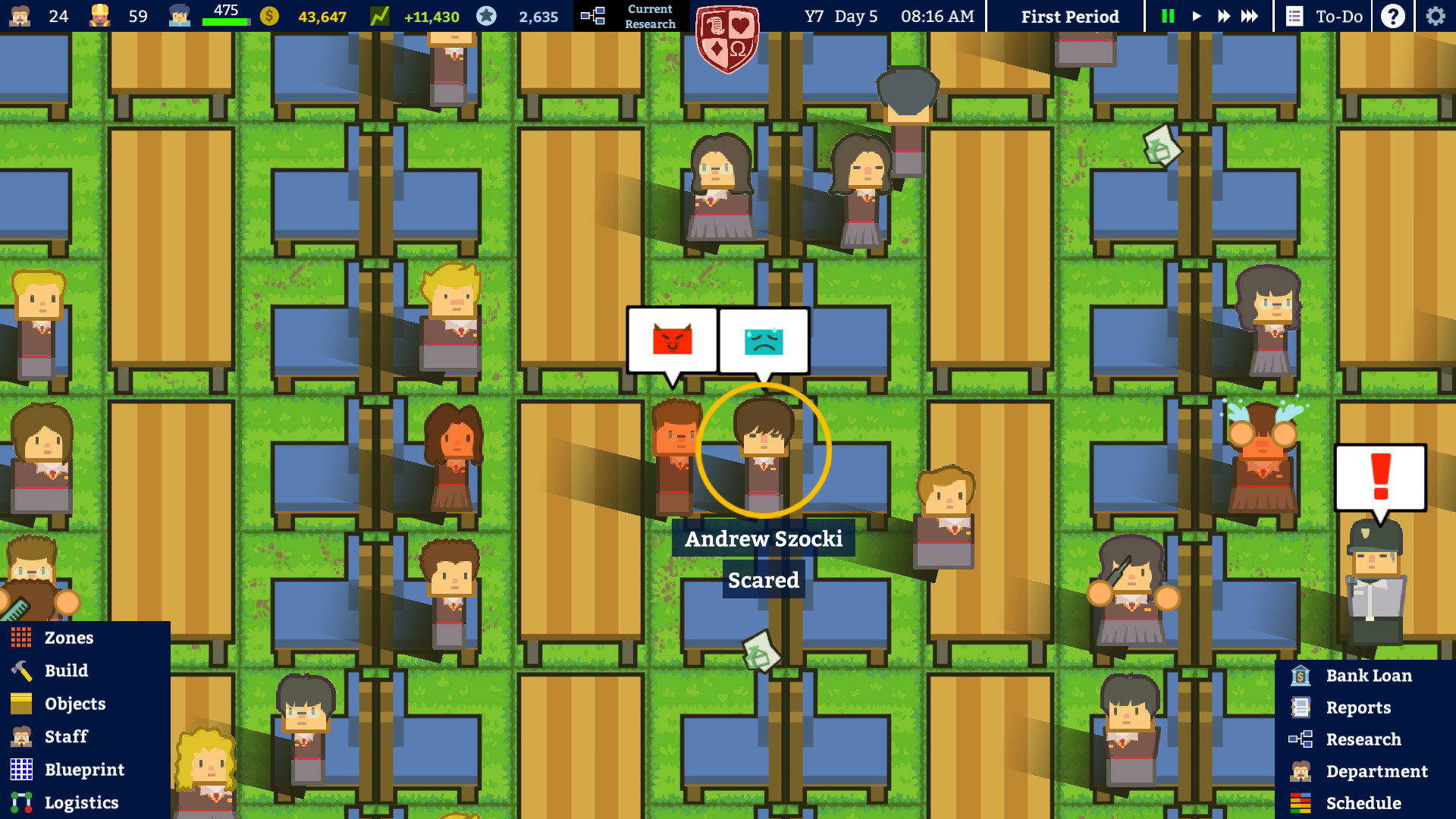Due to the length of the cycle of modern development, game designers manage to implement not so many ideas during their career. Ryan Sumo, CEO of the Squeaky Wheel indie studio, believes that the situation will improve if the gaming industry can adopt one practice from cinema. We are talking about the sale of options for design documents.Academia: School Simulator, one of the Squeaky Wheel games
In his column for Gamasutra, Sumo writes that buying and selling rights to design documents from game designers will help make the gaming industry better.
In his opinion, this will not only lead to an increase in the revenue of companies, but also increase the variety of games produced.
How do options work in the film industry?Film studios do not immediately buy out the full rights to the plots that interest them.
Instead, they turn to screenwriters, writers or heroes of real stories to buy an option.
In this case, film companies pay the authors a certain amount for the transfer of rights for a fixed period. Usually options are bought for six months. During this time, studios offer a script or story to producers and seek funding for the project. At the same time, the author cannot sell his work to third parties himself.
After the expiration of the option, the screenwriter either gets back the full rights to his text and can offer it to other studios, or the company pays him again for the extension of the contract. If successful, the author receives the full fee (minus the payment for the option).
Thus, screenwriters always have the opportunity to realize their work and receive money, even if some texts will not be translated into films.
What does Ryan Sumo offer?He partially agrees with the statement that the ideas themselves are worthless — only their execution is important.
However, according to Sumo, a design document is not just an idea, but a sketch for a future game, on the basis of which it is already possible to create a finished product.
The developer notes that he thought about creating a market of options for design documents appeared because of a banal disappointment. He had some good ideas for games, but he understood that he would not be able to implement all of them in the conditions of the modern industry.
It usually takes three to four years to develop games that I like. Even working with the team, and if I was very lucky, I would be able to release no more than eight games in the rest of my life. For comparison, a good design document can be created in a couple of months. If I could transfer these documents to different studios, I would have a much better chance of seeing some of my ideas come to life. At the same time, these games could have turned out even better than if I had been developing them myself.
CEO Squeaky Wheel
According to Sumo, the options market for design documents will give more freedom to game designers who just want to generate ideas and create. They will be able to come up with game concepts without worrying about their further implementation. In the case of the purchase of rights, the development will already be the concern of a specific studio.
Sumo also believes that options for design documents will also help creators who are afraid to implement their bold ideas due to technical limitations or a limited budget. At the same time, if such game designers try to sell design documents with a deliberately unrealizable concept, studios will simply stop buying options from them.
Something similar to options is already happening in the Japanese gaming industry. There are several creative teams that come up with ideas and give them to other professionals for implementation. As an example, Sumo cites game designer Fumito Ueda, known for Ico and Shadow of the Colossus. He compares himself to an “architect” — his studio genDESIGN comes up with only a drawing, but does not build itself.
Finally, the creation of an options market can help large game publishers. According to Sumo, they already have enough resources to search for design documents for new games and spend several thousand dollars to buy the rights. Also, large companies usually have internal teams or studio partners who are in search of new interesting ideas.

